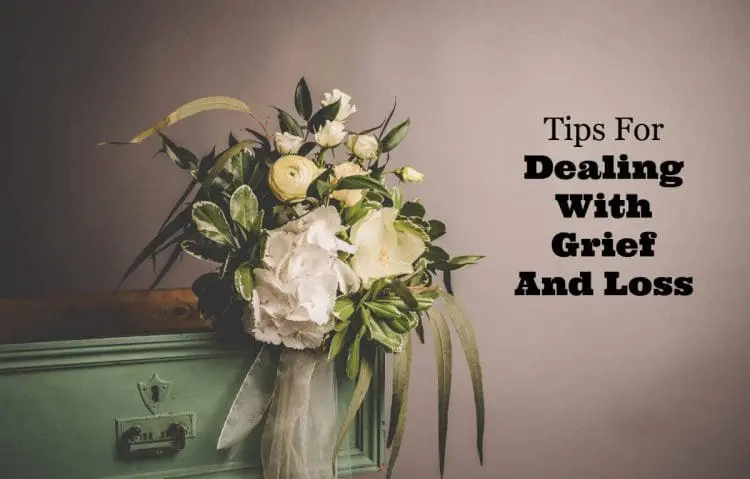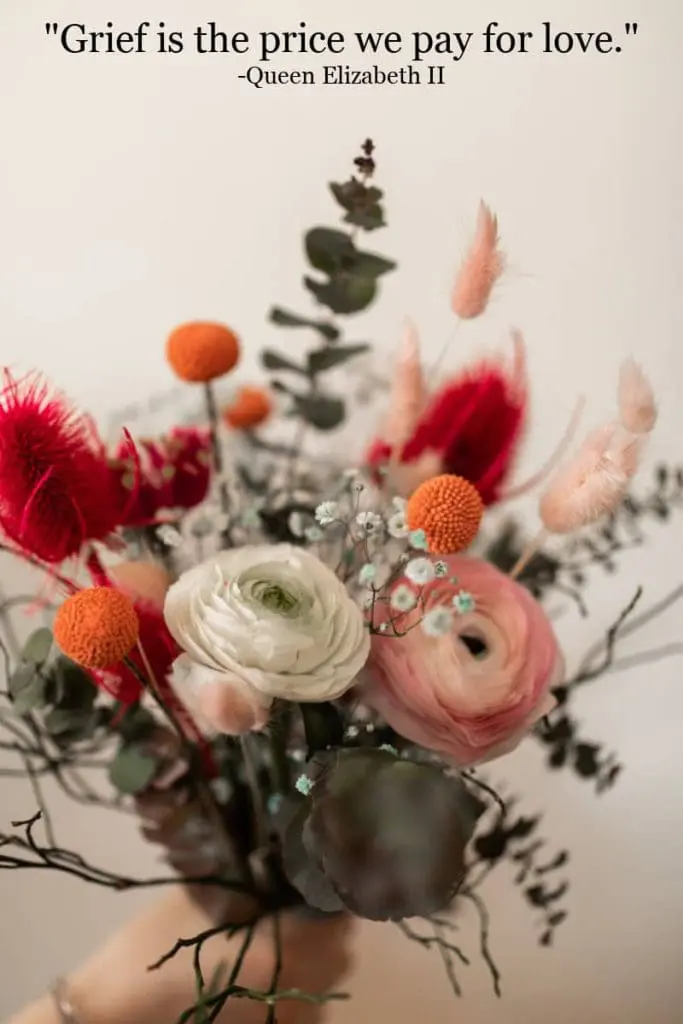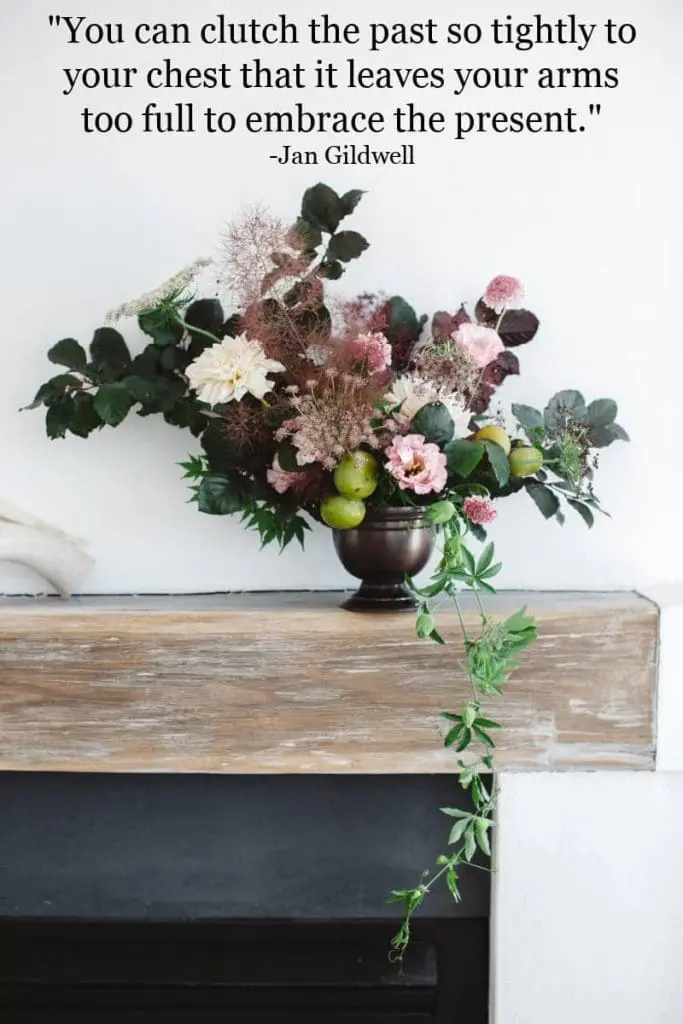Losing a loved one is one of the hardest things you can go through, and yet it’s something that most people will eventually need to cope with. Learning how to deal with death of a loved one is no small feat. Furthermore, every time you lose someone, it’s a different type of pain. This means that even if you have lost people before, it doesn’t get easier. As difficult as it may be, you need to try to deal with your loved one’s death. You have to face the truth head on so that you can begin to heal. Here are a few things that you can try to do as you are dealing with grief and loss. I hope they help you cope with this difficult time.
How To Cope With The Death Of A Loved One

Keep in mind that everyone will react to the death of a loved in a different way. There is no correct way to receive the news that someone you love has died. There is no good way to loose someone. I lost my grandmother when she was 100 years old. Though I was blessed to have her in my life that long, it was miserable watching her fade away. I lost my third child at 6 months of pregnancy and had to deliver a dead baby. Never could I have imagined the pain I felt of losing someone I never even got to meet. I lost both of my sisters in unexpected ways with no chance to say goodbye. All of this to say that death is a horrible feeling of having someone ripped away from you, almost no matter how it happens.
Dealing With Grief And Loss
Death of a parent, spouse, child, or sibling will hurt so much you will likely feel physical pain. There is no way around dealing with grief and loss. You just have to get through it. You do get stronger as a result. Hopefully, it will make you value what you do have more. My best advice is to try to find things to be grateful for. This will help lift you up.
Here are seven suggestion for how to deal with the death of a loved one.
Take care of the funeral arrangements
When you lose someone, the last thing you want to do is plan a funeral, memorial, or similar event. After all, doing so makes their death a reality, and makes you face the fact that they are no longer here.
However, as hard as this may be, arranging a funeral will also offer you a chance to say goodbye to your loved one and get some closure. There are a few things to consider when it comes to the arrangements, such as whether your loved one had any specific requests, or whether there are any religious traditions that need to be upheld. For example, you might have questions like ‘What Does the Bible Say About Cremation?’
Planning a funeral can be very challenging, as you will already be in an emotional state of mind, so be sure to have others help you through the process. Likewise, offer to help with parts of the funeral arrangements if you are not directly responsible but want to help family members. Offering to arrange for the funeral flowers or to make a slideshow with photos are great ways to contribute. Try to use the funeral and the reception or repast as an opportunity to celebrate your loved one’s life. Allow yourself and others to share positive memories of them. It is hard but it is a great way to feel that you honored them. Usually, this tremendously hard day will bring a sense of relief too that you got through it and that your loved one would feel good to see all the support and love that was shown.
Have a support system
If you are hurting from the pain of losing someone you love, the chances are that others around you feel the same way. When we are sad or struggling to deal with our emotions, we tend to hide ourselves away. And while it’s understandable to need some alone time to cope with everything, you certainly shouldn’t isolate yourself entirely. You need to have a strong support system that you can lean on, and the chances are that they need someone too. While being together won’t change the fact that your loved one is gone, it can help to ease some of the pain.
While family and friends are an important part of a support system, you may need more when you are dealing with grief and loss. You may want to find a grief support group where others have experienced the loss of a parent or a child and understand your pain on a personal level. I found a local Grief Share support group for my niece and I to attend. It is such a helpful resource in our healing journey. They have so much helpful guidance on how to overcome grief and and get through your loss. I also just love the camaraderie of of so many wonderfully kind people who understand your pain. It is a safe place to cry and share and feel heard and seen.

Find what works for you
We often have an idea of what grief should look like, but the truth is that everyone grieves differently. Some people don’t even cry when they lose a loved one. That’s okay – it doesn’t mean that they didn’t love the person or that they aren’t affected by their death. It simply means that they process grief differently. Many people have to get through denial before they can begin to grieve.
Find what works for you, as long as it’s not hurting anyone. You may need a few days where you do nothing except cry, or you may feel best when you are keeping busy. You can also try journaling to work through your struggles. Respect your feelings and it is OK to indulge them a bit as long as your are not hurting anyone. Remember that grief is a journey and it will have its ups and downs. Some days are better than others.
Give yourself time
One of the things that you need to understand about grief is that it never fully goes away. It may get better with time, but it will always be there. And there is no timeline for how long it should take you to feel okay.
Your instincts may be to get on with work and other things in your life. Be careful if you do this to fast. You may be forcing your feelings down instead of dealing with them. Loss takes time to process, so don’t be afraid to take it. You can’t rush grief. You may feel like yourself again after just a few days, or it can take many months to get used to life after losing your loved one. The first year is the hardest as you come to so many “firsts” without them, such as your first birthday or holiday without them.
Take care of yourself
Another thing that people often do when they are suffering from a loss is that they stop taking care of themselves. After all the pain of grief can be tremendous and all consuming. It can be hard to focus on day-to-day life when everything feels like it has lost meaning.
This is natural – when you are dealing with such a big change and loss. The simplest things like taking a shower or making dinner for yourself can feel impossible. However, you should still try to take care of yourself in whichever way you can. This may be difficult, but it will make you feel better. Otherwise, you may struggle to adjust to your normal life in the future. It feels as if life should stop at such a tragedy as losing the one you loved, but it doesn’t. And it shouldn’t. It can’t. We all have to go on. We can hold them in our hearts and just keep going one day at a time. It does get easier.

Don’t feel guilty
Once your sadness starts to ease, you may find that you are faced with another type of feeling: guilt. There are many reasons why people feel guilty if a loved one dies. They often feel that they didn’t spend enough time with them while they were alive. Or that maybe they could have said or done something differently before the loved one died. Many people also feel guilty once their pain starts to ease and they start to feel happy. Depending on how their loved one died, some people may also suffer from survivor’s guilt.
However, there is no reason to feel guilty. You can’t be sad forever. Your loved one wouldn’t want you to feel guilty. They would want you to live. So, as hard as it may be, you should try to let go of any feelings of guilt you may be holding onto. You deserve to be happy again. It is ok to miss them AND to live a happy life.
One of my favorite cautionary dealing with grief quotes is: “You can clutch the past so tightly to your chest that it leaves your arms too full to embrace the present.” –Jan Gildwell. Don’t let that happen to you.
Seek professional help
If you cannot deal with your emotions on your own, or you feel very traumatized by your loved one’s death, there is no shame in getting professional help.
Seeing a therapist will help you to process what has happened, and hopefully give you the tools you need to cope with your loved one’s death. So, if you notice that your mental health isn’t doing too well after losing your loved one, don’t be afraid to seek professional help in dealing with grief and loss. If your whole family was affected by the loss, you can even look into family counseling.
In conclusion
It’s never easy to lose a loved one, even if you had many years with them or you were expecting their death due to a long illness. Dealing with grief and loss will still be hard for you in many ways. How to cope with the death of a loved one is hard under any circumstances.
There is no right or wrong way to grieve; you need to figure out what works for you. That being said, you may feel so lost and overwhelmed when you lose someone that you have no idea what to do to help you process your grief. Hopefully, this post gave you some direction on how to deal with death of a loved one. There is not shortcut to grief. You must allow yourself to feel the pain of the loss and then gather up your strength and go on. This process will take as long as it needs to take. Support yourself on your healing journey and be proud of yourself because this is hard and you are doing it!
Additional Resource For Those Dealing With Intense Grief:
Call 988 for the Suicide & Crisis Lifeline. It provides 24/7, free and confidential support for people in distress.
Related Post:

Vijay Book says
Dealing with the death of a loved one is a difficult and emotional process, and a photobook can serve as a comforting reminder of the memories shared with the deceased. The 7 steps outlined in this blog post provide helpful guidance and support for those who are grieving.
Sprinter says
Your suggestions for dealing with grief are really great. You always write something nice. If you are looking for songs about death of a loved one, I suggest Tears In Heaven from Eric Clapton. He wrote that song from his personal experience and from a place of complicated grief on losing his son. I also like “See You Again” by Wiz Khalifa ft. Charlie Puth. Written for the Fast & Furious 7 soundtrack in memory of Paul Walker, this song is about the hope of reuniting with someone who has passed away.